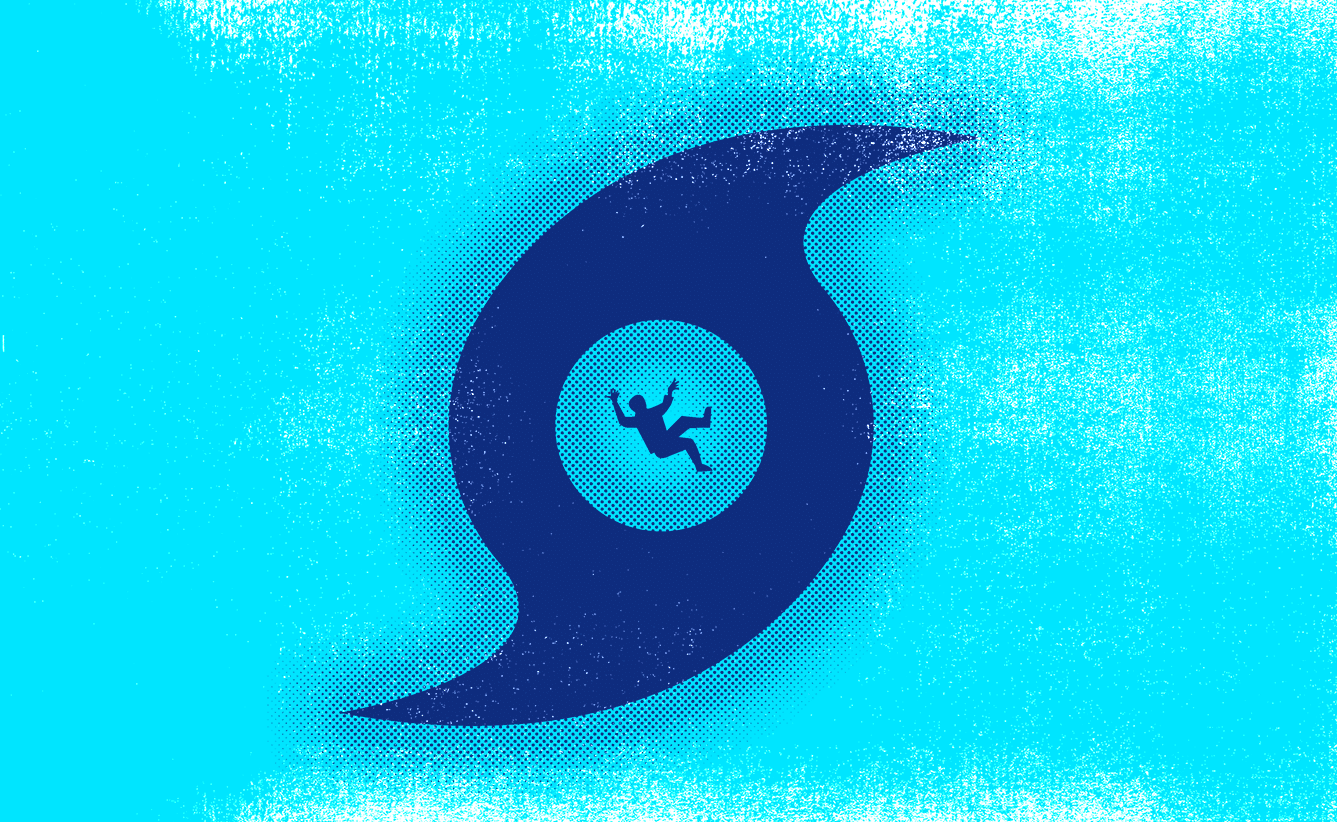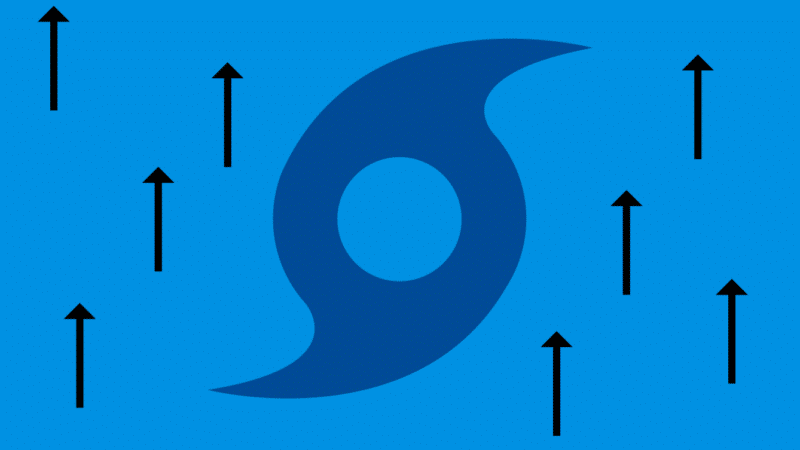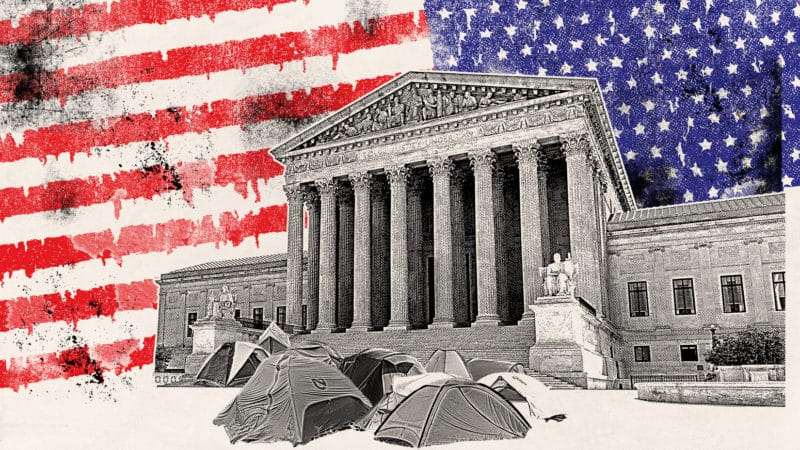Hurricane season is upon us. With it comes the dangers of losing your home, and figuring out what to do when you never had one.
By Mary Stewart
I still remember Hurricane Wilma as clearly as if it had blown through Palm Beach County yesterday. The news predicted that the storm would lose strength after making landfall on the West Coast and moving across land. No one was prepared for a Category 3 direct hit.
However, my natural inclination to worry and overreact led me to spend all my food stamps on bottled water and non-perishable foods. Even so, I remained in my mobile home instead of going to a Red Cross shelter.
My trailer shook violently as I listened to the radio, drank Starbucks Frappuccino, and prayed. I heard the whistling of the wind and the pounding of the raindrops against my tin roof. Then, all was quiet. I stood at my kitchen window and watched the calm eye of the storm pass right over me.
The radio newscaster warned that the second band would be much worse. My life hung in the balance as my trailer tipped to the side and slammed back down on the concrete blocks. I was petrified. My kitchen window broke and palm fronds blew inside along with rain and other debris. Finally, it was over. I had survived.
My trailer was badly damaged. There was a gaping hole in the roof over my hallway closet and the pipes had come loose. I reported the damages to FEMA. They agreed that my home was no longer livable but said the damages could be repaired. They only compensated me for the loss of personal property.
I didn’t know about escrow accounts or my legal right to temporarily withhold rent. My boyfriend insisted that I shouldn’t continue to pay to live there. I wanted to stay, but I was a foolish and naive young girl who followed behind my wayward older boyfriend.
I moved to a motel and spent my FEMA money on a room. Housing instability made it impossible to focus on college and I ended up not meeting the standards of academic progress that semester. As a result, I lost my financial aid. Since I had a work study position, I also lost my job.
After my FEMA money was gone, I slept on the floor at the Westgate Tabernacle Church with the countless others who had also become homeless as a result of hurricanes that hit that year. My very first cardboard sign said, “Just became homeless due to Wilma. Please help.” That was in 2005. I was only 24 years old.
My initial episode of homelessness may have been avoidable had I made better decisions following the storm. Looking back, I should’ve consulted Legal Aid rather than rely on the wisdom of an ex-con who I was madly in love with.
I was very happy living in that mobile home park and going to college. My landlord had previously been good about purchasing materials for repairs and my neighborhood truly came together to support one another after the storm. But I gave all of that up and became accustomed to street life.
Many people across the country have faced the possibility of homelessness due to natural disasters. 7.5 million people have been displaced due to storm damage since 2008 according to the Internal Displacement Monitoring Center — an international organization consolidating displacements within a country. Wilma damaged more than 4,000 single-family homes and about 2,500 mobile homes, with over 250 being heavily damaged and 15 being destroyed according to a report by Florida’s Department of Environmental Protection.
While we cannot control the storm tracks nor can we guarantee that we won’t lose our homes, there are steps that can be taken to reduce the chances of becoming chronically homeless.
Of course, storm shutters are a given and mobile homes should be properly strapped down. Floridians should also stock up on recommended supplies beforehand, including flashlights, batteries, water, non-perishables, a radio, a portable battery charger and more, according to FloridaDisaster.org. But there are some things that are often overlooked.
I remember the FEMA agent asked me if I had renter’s insurance. I responded that I was a college student who could barely even afford my rent. However, renter’s insurance would have helped a lot for replacing my water-logged belongings. I also should’ve spent my FEMA money more wisely.
I learned many years later that rent money can be withheld if a landlord doesn’t make repairs in a timely manner. If a judge approves an application to do so, rent can instead be put into a special account called an escrow pending repairs. Different states, counties, and towns have different renters rights though, so you should check what actions you can take where you live.
Hurricane Wilma struck shortly after Hurricane Katrina ravaged Louisiana. Most of the federal resources were going elsewhere. It’s important to be as prepared as possible, especially now when the cost of living is high and it may not be easy to find another rental or obtain the assistance you need.
And, speaking from my own experience, the longer a person is homeless, the more likely they’ll become comfortable with that lifestyle. After Hurricane Wilma, I subsequently remained homeless on and off for the next twenty years.
If you become homeless after a storm, promptly seek housing, jobs, and resources. Find a solution and establish a plan for recovery. Don’t let yourself lose hope and get stuck in a rut like I did.
Although weathering a hurricane in a trailer was terrifying, it doesn’t even compare to the level of fear and safety risks involved with attempting to survive a storm while homeless. I went through several hurricanes, including Irma and Nicole, while living on the streets.
As a native Floridian, hurricanes have become normal to me. During one tropical storm, my husband and I stored our belongings in plastic tubs in one tent and took the other tent down, securing it with concrete blocks.
Our friend received help with getting a motel room, so we stayed with him and were even brazen enough to panhandle in the storm once the worse bands had passed — which I don’t recommend. Aside from ending up soaked, those storms are unpredictable and can spawn tornadoes. Anyway, few people were willing to roll their windows down.
We were initially fearless when we heard Hurricane Irma coming through, but once the rain bands moved in, reality hit home. I flagged down an officer to take us to a shelter. The first shelter refused to accept us and told the officer that they weren’t “hobo express.”
The next shelter accepted us, but segregated the homeless our second night there. If possible, I’d advise not sharing homeless status when going to a hurricane shelter.
Although I seriously doubt that the Red Cross is biased towards the homeless, there may be some volunteers who don’t understand. At the very least, they may have been trying to make the shelter feel safe and comfortable for other evacuees.
Since we left our camp in a hurry, we didn’t bring any belongings. As a result, we were freezing cold on the floor of the high school. I’d recommend bringing a blanket, sleeping bag, phone charger, and a couple changes of clothes.
There aren’t any showers at Red Cross shelters, but you can freshen up in the bathroom, so you may want to bring minimal toiletries. You can always refer to the Red Cross website or call the shelter ahead of time to find out which items are allowed.
Last year, Hurricane Nicole hit. My friends decided to stay at their camps, but I called the cops for a ride to a shelter. Once again, I admitted my homeless status, and this time, the officers bypassed the nearest shelter in favor of one that was designated for the homeless.
I didn’t face segregation, but was once again soaking wet and freezing cold. I realized the next day that blankets and snacks were only being provided for residents of the federally funded Lewis (homeless resource) Center. If you are homeless in Palm Beach County, I strongly suggest bringing your own supplies with you to the hurricane shelter.
However, you don’t need to pack up your entire camp. While there, I noticed that many homeless people brought everything they owned and struggled to fit it all in the buses the next day.
Just take what you need and secure the rest at a friend’s house or in a storage unit. If you don’t have those options, you should keep your extra belongings in plastic tubs secured with concrete blocks. And always take your tent down and secure that as well.
If you have a substance abuse disorder and are worried about withdrawing in a shelter, I’d suggest going to your local detox or emergency room. My friend, Cowboy, once weathered a storm in a shopping plaza to avoid alcohol withdrawal. Miraculously, he survived, but he took a chance with his life.
Hurricanes are a fact of life in Florida. However, they can be the cause of homelessness and a life-threatening event for those already living on the streets. Fortunately, there are precautions that can be taken to help you survive this hurricane season.



